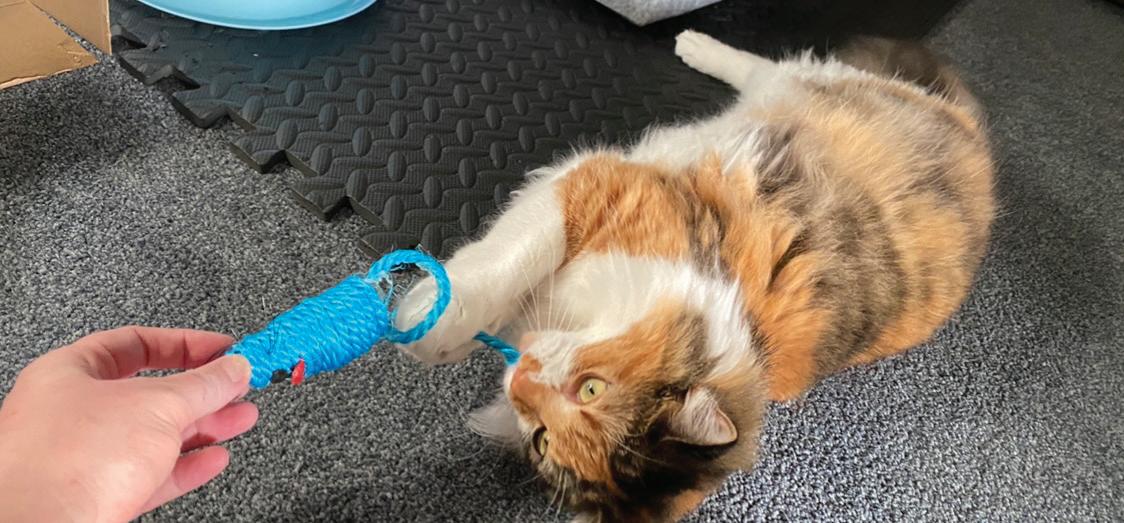
2 minute read
Saying goodbye…
At the time of writing last month’s column I was busy packing my bags to head off to Mumbai, India… -
By Rachel Bean
As a Qualified Veterinary Nurse, and canine first aid trainer, I was travelling to India to work with charities and vets, teaching the skills as well as helping hands-on.

During the trip, I supported the Youth Organisation in Defence of Animals (YODA) in their street dog neutering programme, as well as leading a canine first aid course.

In two days we managed to neuter a whopping 38 dogs and cats, which will massively help improve dog welfare on the streets of Mumbai.
As well as that I was honoured to help legendary Indian dog trainer Shirin Dhabhar during her Advanced Dog Training Course, and I was lucky to be in the country for Indian Republic Day, and witness the celebrations.
India is a country like no other, and the trip was a wonderful learning experience for me, as well as a chance for me to share my skills.
On another note, this month I was asked by a national newspaper to give their readers advice on what to do when their beloved dog needs to be put to sleep.
A very sensitive subject of course, and it got me thinking about all the times I have been present at this important moment, in my practice.
Having to say goodbye to a beloved pet is the moment that we all dread, and when it is time to let your dog go, it can be a dignified and loving experience.
You will be taken into a room with your dog, and the vet will administer a measured overdose of a drug, which helps your dog drift off in a painless and humane way.
This can be a difficult and emotional time for owners, but a time when you can reminisce of all that they have given you in your life.
Dogs are family group animals, and you are their attachment figure, their role model, and the centre of their whole world. Your dog will take a tremendous amount of comfort from seeing you, hearing your voice and feeling soothing gentle strokes from you in this unusual environment.

In the room make sure that your dog can see your face, and see that you are there. Talk to them and tell them how loved they are. Research shows that dogs understand the words ‘I love you’ so tell your dog how much you care about them, and thank them for sharing their precious life with you.
This can be a very raw and emotional time, and you may feel angry, numb, upset or tearful. Understand that these emotions are completely normal, and that the veterinary staff are doing their best to make this moment as gentle as possible.


Rachel Bean is a qualified veterinary nurse, and the UK’s leading canine first aid trainer. She wrote the iPET Network’s qualification in canine first aid.












